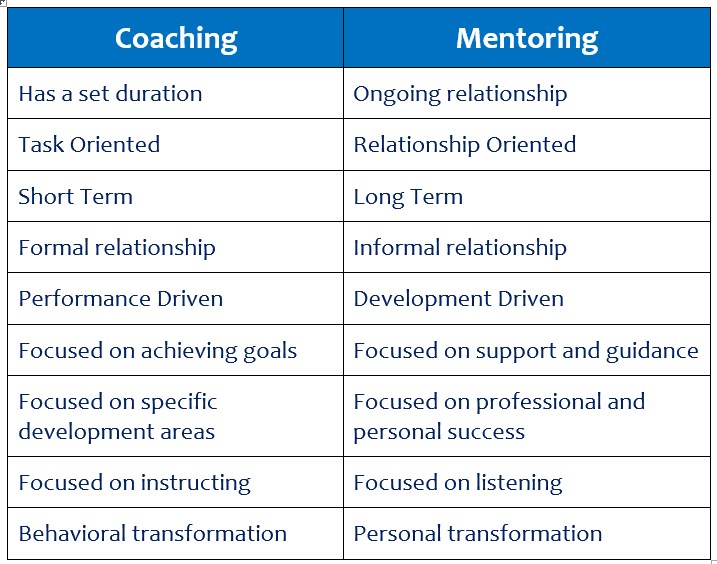Voice over mentoring is one of the most important ingredients to help you develop your voice over career. In this article, we’ll explain more about the benefits of having a good mentoring system and what makes Gravy For The Brain’s offer unique.
VOICE OVER MENTORING – TABLE OF CONTENTS
WHAT IS VOICE OVER MENTORING?.
WHY VOICE OVER MENTORING IS AN ESSENTIAL SUCCESS INGREDIENT.
WHY GREAT VOICE OVER MENTORING IS HARD TO FIND.
WHAT IS GROUP VOICE OVER MENTORING?
GRAVY FOR THE BRAIN VOICE OVER MENTORING.
WHAT IS VOICE OVER MENTORING?

First of all, we need to define what is mentoring and then apply this to voice over.
Mentoring describes how an experienced person shares knowledge to develop a less experienced person. The mentor uses questioning, listening, clarifying and reframing techniques to clarify problems and frame answers.
Compared to coaching, mentoring tends to focus on longer-term engagements.
Voice over mentoring relationships work best when they are less directive and more consultative. Effective mentoring is a learning opportunity for both parties. Both sides need to share and learn across from each other.
VOICE OVER MENTORING VS VOICE OVER COACHING

Voice over mentoring is the long-term goal of working with a mentee to help improve their overall career as well as achieve their long-term goals. Conversely, voice over coaching is focused on shorter-term goals and improving performance in a much tighter time frame. Quite often voice coaching focuses on improving a particular voice technique.
Having access to voice over mentoring should be ongoing. You will get your career off the ground quicker by continually developing your knowledge and skills. Needless to say, there is a lot to learn about voice over. Mentoring delivers a regular stream of advice to guide your career.
Of course, there are different types of mentors you may need to draw upon. At Gravy For The Brain, we are proud to offer voice artists a unique range of professional mentors. Gravy For The Brain mentors cover these topics:
- voice over skills and techniques – how to improve your voice skills.
- technical audio production – how to optimise your showreels to improve how auditions.
- voice over clients – how to manage and create a regular set of loyal clients.
- voice over business – how to build your voice over business from the ground up.
- home studio – how to create the perfect recording environment no matter what your budget.
If you are a seasoned professional and have benefited in your career from being mentored by others, then it may be time to consider mentoring others who are new to the industry. It’s always good to take people under your wing knowing that your input makes a difference to their success. That’s why we’ve adopted this approach at Gravy For The Brain.
WHY VOICE OVER MENTORING IS AN ESSENTIAL SUCCESS INGREDIENT.

As a voice over actor, you will come across situations where you want to advice tailored to you.
It’s those life moments, that are unique to you, that often spark the need for a more personalised service. As part of the Gravy For The Brain membership, you get access to all our voice over mentors. They have been through many, if not all, of the hurdles in starting and growing a successful voice over career.
Studies show that professionals who have had a consistent level of mentoring perform better. It’s invaluable having a dedicated person who you can go to with questions about your voice over business. Having a mentor helps a mentee feel as though they are not on their own. When a mentee feels comfortable asking questions and receives support, they’ll be more ambitious about their goals!
Not only can a mentoring partnership help those new to the voice over industry gain skills, but mentoring also helps mentees develop soft skills such as working with others.
WHY GREAT VOICE OVER MENTORING IS HARD TO FIND.
There are plenty of experienced voice over actors, but only a few have been mentors.
Good mentoring also has a strong ethical component. A mentor needs to:
- be responsible for the learner and their progress.
- be respectful for the learner’s right to make his/her own decisions.
- have a non-judgemental approach so people are treated with respect and honesty.
- respect confidentiality regarding personal circumstances.
Any mentor needs to take time to assess their own style. A good mentor also knows when to listen and pause the conversation. A pause can give the mentor a chance to gather information, find relevant resources, and come back with a clear and valuable response.
GOOD MENTORING PRACTICES
The best mentors are emotionally intelligent. They have a deep understanding of people and do not just focus on themselves and their own motivations. In other words, they focus on the mentee. Another point is that they do not simply categorise people or fall prey to thinking in terms of stereotypes. They always see a situation from the other person’s perspective.
Great mentors recognise it’s their responsibility to break through common assumptions by asking questions. This is especially true when mentoring someone who’s in the early stages of their career.
Some questions a good mentor asks themselves:
- How will I know when the mentee is successful?
- How will I communicate what success looks like to him/her?
- Do I understand what the mentee needs to focus on first?
WHAT IS GROUP VOICE OVER MENTORING?

As a young entrepreneur, Benjamin Franklin created the Leather Apron Club, a group mentoring experience for a select group of Philadelphia tradesmen. The Leather Apron Club met weekly and their gatherings provided a forum on how they could support each other’s personal growth and professional advancement.
Group mentoring is a mentorship experience that is inclusive. Benjamin Franklin intentionally designed the Leather Club as a collaborative mentorship. He recognised that the rules and expectations needed to be co-constructed. In doing so it allowed others to be included in the conversations and how the group mentorship developed. This inclusive practice provided a feedback loop that reinforced the benefits for all members of the group.
BENEFITS OF VOICE OVER MENTORING.
Group mentoring then is a way to share the knowledge and expertise of individuals not just from a single lead. Group mentoring provides others with exposure to a broader base of experience and knowledge that from a single mentor. Facilitated group mentoring allows people to participate in a learning group and to benefit simultaneously from the experience and expertise of a mentor. This experience improves as each group member brings personal experiences into the conversation.
At Gravy For The Brain we take this approach to voice over mentoring.
GRAVY FOR THE BRAIN VOICE OVER MENTORING.

As a member of Gravy For The Brain, we have a range of expert mentors that can help you with every aspect of your voice over career. It is up to you how often and to what extent you participate in the mentoring sessions and conversations.
You will find that as part of our voice over mentoring we constantly aim to help voice overs at every stage of their career. In particular, we want newcomers to voice over to succeed. There are hurdles to overcome, as with doing anything for the first time, but guidance and support greatly increase your chances of success. For this reason, Gravy For The Brain offers a range of services to support you.
As an example, we offer voice over mentoring, lots of useful downloadable resources, voice over training and voice over tools to kick-start your career.
MEET THE GRAVY FOR THE BRAIN MENTORS
Every year we also host the One Voice Conference. An event where you can meet the voice over mentoring team as well as leading voice actors in the industry. If you want to learn more about the exciting world of voice acting then come along to the One Voice Conference. The One Voice Conference is the premier global event for voice actors.